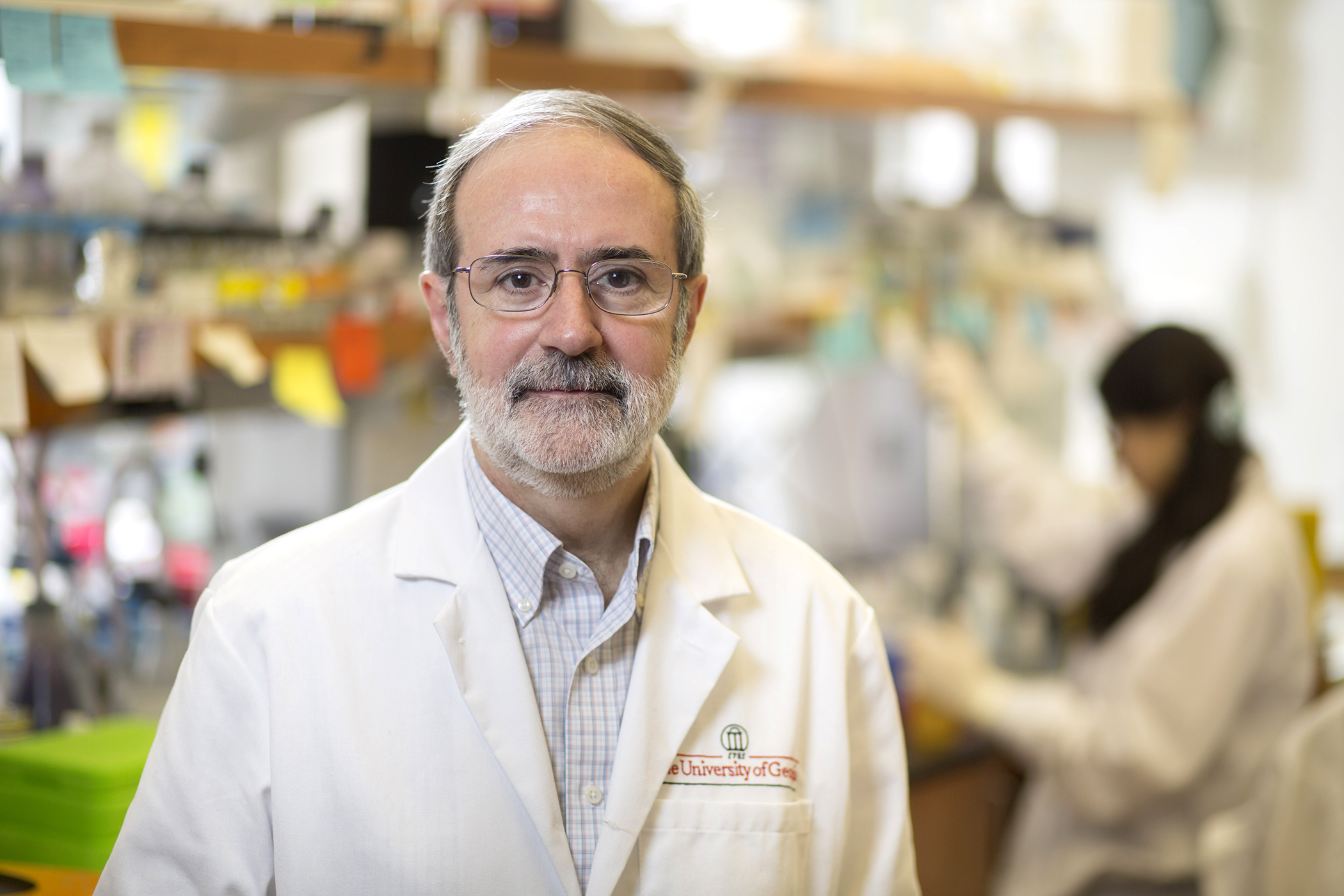Deletion of a Golgi protein in Trypanosoma cruzi reveals a critical role for Mn2+ in protein glycosylation needed for host cell invasion and intracellular replication

Trypanosoma cruzi is a protist parasite and the causative agent of American trypanosomiasis or Chagas disease. The parasite life cycle in its mammalian host includes an intracellular stage, and glycosylated proteins play a key role in host-parasite interaction facilitating adhesion, invasion and immune evasion. Here, we report that a Golgi-localized Mn2+-Ca2+/H+ exchanger of T. cruzi (TcGDT1) is required for efficient protein glycosylation, host cell invasion, and intracellular replication. The Golgi localization was determined by immunofluorescence and electron microscopy assays. TcGDT1 was able to complement the growth defect of Saccharomyces cerevisiae null mutants of its ortholog ScGDT1 but ablation of TcGDT1 by CRISPR/Cas9 did not affect the growth of the insect stage of the parasite. The defect in protein glycosylation was rescued by Mn2+ supplementation to the growth medium, underscoring the importance of this transition metal for Golgi glycosylation of proteins.
Ramakrishnan S, Unger LM, Baptista RP, Cruz-Bustos T, Docampo R (2021) Deletion of a Golgi protein in Trypanosoma cruzi reveals a critical role for Mn2+ in protein glycosylation needed for host cell invasion and intracellular replication. PLoS Pathog 17(3): e1009399. https://doi.org/10.1371/journal.ppat.1009399
